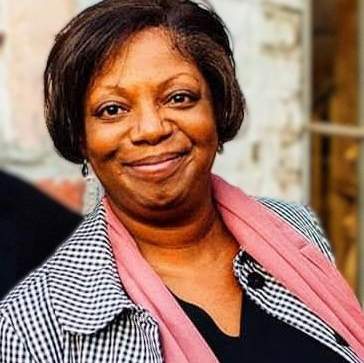Mercer, Macon now more intertwined

If there’s a color associated with this city during the month of March, it’s pink.
The 10 days of the city’s Cherry Blossom Festival are billed as the “pinkest party on earth,” with pink pancake breakfasts, pink apple sauce-eating contests and a pinkadelic parade through downtown.
With Mercer’s improbable victory over Duke in the second round of the NCAA basketball tournament, however, a bit of the school’s orange and black is seeping in. And, if the Bears win again Sunday against Tennessee, March Madness might just overshadow the city’s signature event.
The reason for Macon’s collective embrace of Mercer might seem as simple as Friday’s 78-71 score, but it’s actually been years in the making. Perhaps more than any other time in school history, Mercer and Macon are aligned.
Kenneth Hammond worked at Mercer for more than 25 years before he retired. When he first came to the school, he said, “There was not as great a participation of Mercer in the community. And, in the community, there wasn’t as much appreciation of Mercer as there should have been.”
Mercer began taking deliberate steps to change that about 15 years ago. The school partnered with the city and the Macon Historic Foundation to revitalize the area around the school. Forty-two dilapidated structures were demolished. So far, 10 historic homes have been rehabilitated, and 44 low-income homeowners have received financial aid to improve their property.
The university offers down-payment assistance to Mercer employees who want to buy in the neighborhood. Its students have become tutors and volunteers in underachieving schools. Middle school students attend science labs on the university’s campus, and Mercer students hold SAT preparation classes for high schoolers.
The community has noticed. Macon native Jeremiah Dishmond will be cheering for Mercer Sunday. Sure, that’s partly because of the Bears’ success. But it’s also because he feels more vested in the school.
“When I was growing up, we didn’t think of Mercer at all,” he said. “It wasn’t even a topic of conversation. Now, you can’t go anywhere without seeing something that has to do with Mercer.”
The university has been a great neighbor, said Cindy Canova, principal of Alexander II, a magnet school in Mercer’s shadow. “We have student volunteers from Mercer. … They take care of their site, and we take care of our site. We feel like it’s a win-win situation.”
During Friday’s game, teachers offered updates on the score as incentives for students to get their work done.
A 3,500-square-foot banner that hangs on the side of a downtown building intertwines the university and the city, which is also home to Wesleyan College and Macon State College: “Welcome to Macon where the South rocks. Home of the Mercer Bears.”
“It’s a different day,” said Peter Brown, who was out Saturday attending Cherry Blossom events with his family. Brown has worked at Mercer for 42 years as a philosophy professor and administrator.
“Fifteen years ago, Mercer was an enclave. People in the city were proud of it, but it was an enclave. It’s turned 180 degrees. Part of it is self-interest. As the town goes, Mercer goes, too. But it’s also genuine. I’m as proud as I’ve ever been.”
His wife, Bette-Lou Brown, once director of the Historic Macon Foundation, agreed. Not long ago, she said, the university used to warn students not to stray too far from campus. “Now, the whole neighborhood is open.”
Hammond, who moved into a historic neighborhood within walking distance of the university eight years ago, said he’s glad to see more people from the community are going to events on campus. Just last year, Mercer revived its football program, on hiatus since 1941. The school posted an impressive 10-2 record its first season. And Macon rallied to support the program.
“I think people are realizing there are things going on here that are worth their time and attention,” Hammond said.
Alumni are now proud of Mercer’s reach in the community. “Boy, has it changed,” said Ruth Meisner Stevens, who met her husband Tom at the university. “When we went to Mercer, I always felt we sort of lived in our own little academic enclave and Macon really didn’t care if we lived or died. … Nobody says ‘Mercer who’ anymore.”
This year, Mercer President William Underwood was named citizen of the year by the city’s Chamber of Commerce.
The university also has started to reach out to neighborhoods not in its immediate vicinity, said Mary Alice Morgan, senior vice provost for service learning.
“It’s a real sincere philosophy that, for those in higher education, it’s not just about getting a degree. It’s about being a good citizen, and you don’t have to wait until you graduate.”
More Stories
The Latest



